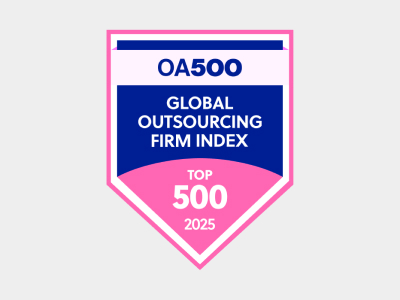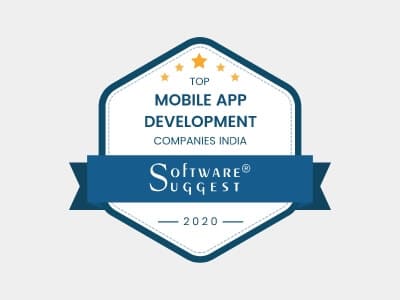Listen to the podcast :
In the tech world, Artificial Intelligence is exhibiting a meteoric rise and the large language models (LLMS) are emerging as the backbone behind this unprecedented change. Three titans rule the world of Artificial Intelligence by large: Google Gemini, Microsoft’s Copilot, and OpenAI’s ChatGPT. These three have enticed the attention of everyone including tech enthusiasts and common persons. While each model offers a unique blend of abilities and has its own pros and cons, in this comprehensive write-up, we will explain Google Gemini vs. Copilot vs. ChatGPT.
Google Gemini, Copilot, and ChatGPT cater to the diverse needs and preferences of users. However, you need to dissect the core features, strengths, and weaknesses of each model to make better decisions while selecting an AI tool for your personal and professional use.
Quick Comparison: Gemini vs Copilot vs ChatGPT (2025 Snapshot)
| Google Gemini | Microsoft Copilot | ChatGPT (by OpenAI) | |
| Strengths | Multimodal (text, image, video), large context window, and accurate factual grounding. Best for research-heavy and multimodal tasks. | Deep integration within Microsoft 365 (Word, Excel, Outlook, Teams). Strong at structured corporate writing, document summaries, and productivity workflows. | Creative and conversational. Versatile for brainstorming, writing, coding help, and education. Large plugin ecosystem and Custom GPTs. |
| Weaknesses | Still limited in wider availability. Some features tied to Google ecosystem. Less community adoption compared to ChatGPT. | Restricted to Microsoft ecosystem. Creativity and flexibility outside Office apps are limited. | Can hallucinate or provide inaccurate information. Real-time browsing/research weaker than Gemini. May struggle with nuanced, factual detail. |
| Best For | Researchers, analysts, and users within Google Workspace needing multimodal capabilities. | Enterprises and professionals using Microsoft 365 daily for productivity tasks. | Writers, creators, educators, and general users seeking a flexible AI assistant. |
| Pricing | Included with Google One AI Premium or select Workspace subscriptions. | Bundled with Microsoft 365 Copilot license, pricing depends on enterprise plan. | Free plan available. Paid tiers: Plus, Team, Enterprise with GPT-5 access. |
Who are the Contenders?
First thing first – let us understand the contenders. Before we delve deep into Google Gemini vs. Copilot vs. ChatGPT, you need to establish a foundational understanding of each of these.
Google Gemini
Google Gemini has been positioned as a groundbreaking multimodal AI model. The model has the capability to seamlessly process and produce text, images, audio, and even code. Google Gemini’s such versatility keeps this tool apart from the rest as it promises more adaptability and overall AI experience.
Google’s flagship AI is designed for multimodality — handling text, images, audio, and video in a single context. With its massive context window, Gemini can analyze large files, research papers, and long conversations without losing track. Independent reviews highlight Gemini as the most accurate fact-checker among current LLMs, though its availability is tied to Google Workspace and Google One AI Premium.
Best suited for researchers, analysts, and users already in the Google ecosystem.
Microsoft Copilot
Heavily rooted in almost all Microsoft ecosystems, Copilot harnesses OpenAI’s GPT-4 technology to offer intelligent inputs across a gamut of applications such as Microsoft Word, Microsoft Excel, Microsoft PowerPoint, and even Outlook. The tool is built to enhance user productivity by integrating real-time suggestions and streamlining tasks.
Copilot is less a “standalone chatbot” and more an AI productivity assistant built into Word, Excel, PowerPoint, Outlook, and Teams. It’s excellent at generating structured documents, cleaning up spreadsheets, drafting presentations, and handling corporate workflows. However, outside Microsoft’s ecosystem, its flexibility is limited.
Best suited for professionals and enterprises who run their daily work on Microsoft 365.
OpenAI ChatGPT
The most popular in the LLM domain, OpenAI’s ChatGPT has enjoyed widespread acclaim for its powerful conversational capability and capacity to produce human-like responses. The tool excels in enticing users with its unique conversation, accurate information, and creative art.
ChatGPT (now available in GPT-5 for paid users) remains the most creative and conversational AI. It’s excellent for brainstorming, writing, coding help, and learning. With plugins and custom GPTs, it can be extended into countless workflows. Its biggest challenge remains factual reliability compared to Gemini, though its flexibility and adoption remain unmatched.
Best suited for creators, educators, and general users who need a versatile AI assistant.
Ready to build the future? Create self-predictive and generative AI software for your business today
Head-to-Head Comparisons
Gemini vs ChatGPT
- Accuracy & Research: Gemini provides more reliable citations and factual grounding.
- Creativity & Conversation: ChatGPT is better at storytelling, teaching, and human-like interaction.
- Use Case Fit: Choose Gemini for data-heavy research; ChatGPT for creative content.
Copilot vs ChatGPT
- Productivity: Copilot wins inside Word/Excel/Outlook for efficiency.
- Creativity: ChatGPT excels at unstructured tasks like brainstorming.
- Enterprise vs General: Copilot is ideal for office professionals, ChatGPT is for everyone.
Gemini vs Copilot
- Multimodal Input: Gemini supports more input types.
- Workflow Integration: Copilot integrates deeply with Microsoft apps.
- Decision: Gemini is better for research + multimodality, Copilot is better for corporate tasks.
Gemini vs Copilot vs ChatGPT (3-Way Showdown)
| Google Gemini | Microsoft Copilot | ChatGPT (by OpenAI) | |
| Accuracy | ✅ High | ⚪ Moderate | ⚪ Variable |
| Creativity | ⚪ Moderate | ⚪ Limited | ✅ Strong |
| Productivity | ⚪ Moderate | ✅ High | ⚪ Moderate |
| Ecosystem Fit | Google Workspace | Microsoft 365 | Standalone + Plugins |
| Best Use Case | Research, multimodal projects | Enterprise workflows | Creative & educational tasks |
A Comparative Analysis of Core Features
While all these AI models showcase remarkable proficiency in producing human-like responses through texts, their focuses and abilities diverge remarkably. Let us now compare it in the battle of Google Gemini vs. ChatGPT vs. Copilot
Text Generation and Comprehension
Microsoft Copilot
Microsoft Copilot demonstrates stronger text generation and capabilities, especially within the context of Microsoft applications. The tool impressively completes sentences, enhances overall write-up, and suggests tailored content.
Google Gemini
As a multimedia model, Google Gemini’s text generation abilities are backed by a deep understanding of language fundamentals. This AI tool has the capability to build more sophisticated and contextually fit texts as compared to its predecessors.
OpenAI ChatGPT
Known for its conversational fluidity and innovation, ChatGPT excels at producing myriad text formats such as emails, scripts, poems, and even codes. It excels at grasping and responding to complex prompts and offers a dynamic and interactive output.
Code Generation and Assistance
OpenAI ChatGPT
OpenAI’s ChatGPT is able to generate code snippets and also explain the code logic. The tool’s main focus is on text-based interactions, though. ChatGPT’s code generation capabilities are quite restricted compared to Copilot.
Microsoft Copilot
Copilot shines in generating code or programming the digital product as it is tailored to developers’ requirements. The tool offers real-time code suggestions and completion along with its explanation. This remarkably boosts developers’ productivity.
Google Gemini
Gemini is considered as a revolutionizing code generator and programmer’s assistant with its multimodal capability. It’s anticipated to excel the tasks like code debugging, writing code from natural language descriptions, and optimization.
Curious about the future of AI in business? Discover exclusive insights from top CXOs in the industry
Multimodality
Google Gemini
Google Gemini is a multimodal powerhouse and, therefore, this AI tool performs outstandingly by processing and producing myriad data forms such as videos, audio, and AI image generation. Google Gemini’s inherent capability extends the horizons of AI applications in myriad domains.
OpenAI ChatGPT
Primarily built as a text-based model, ChatGPT’s multimodal capabilities are also restricted because its focus has remained on gaining and grasping human-generated language.
Microsoft Copilot
Copilot was primarily made for text and coding assistance. Nevertheless, the tool’s multimodality brought in new capabilities but still not up to par compared to the other AI models. Its integration with Microsoft’s suite of applications can allow the tool up to certain level of interaction with different data types and forms.
Strengths and Weaknesses
| Google Gemini | Microsoft Copilot | ChatGPT (by OpenAI) | |
| Strengths | Google Gemini’s multimodal abilities and potential to perform with advanced reasoning is remarkable. It has great problem-solving algorithms and a strong foundation due to Google’s extensive research and support. | This is the only tool with seamless Microsoft ecosystem integration and sync. Hence, Copilot produces the best results within those apps. It has exceptional code generation and assistance within the ecosystem. It also has access to and process information from user-generated documents/content. | Remarkable conversational capabilities. It is versatile in generating texts and has an extensive user base. It continuously improves through reinforcement learning. |
| Weaknesses | Google Gemini, according to some has limited availability for unique responses. The novelty compared to other tools is lacking. Also, it has potential early-stage limitations in specific cases. | Dependability on Microsoft landscape brings clear limitations in creativity. Open-ended tasks seem to be challenging and dependency on the quality of training data is far from perfection. | The tool sometimes produces incorrect and/or misleading content or information. ChatGPT is also reported to lack access to real-time information and data. Also, it may struggle with perplexed or nuanced tasks. |
Think you know AI? These trending AI statistics might change your mind
Choosing the Right AI Model for your Purpose
Selecting the optimal AI model depends on your specific needs and priorities. You can use these AI tools powered by LLMs for your personal or professional use.
- Prioritize conversational AI and creative text generation: OpenAI’s ChatGPT is a preferred choice.
- Focus on code generation and assistance with the Microsoft ecosystem: Copilot is the best choice.
- Require an AI model with versatility to tackle diverse data types and perplexity: Google Gemini holds the power.
Note: This is based on our experience. It is advisable for readers to check these AI tools by themselves before coming to any conclusion.
Google Gemini vs. Copilot vs. ChatGPT – A table at a glance
Here’s a table highlighting the differences between Google Gemini, Microsoft Copilot, and ChatGPT:
| Feature/Aspect | Google Gemini | Microsoft Copilot | ChatGPT (by OpenAI) |
| Primary Use Case | Integrated AI in Google services (search, Workspace) | Integrated AI in Microsoft Office apps (Word, Excel) | General-purpose conversational AI |
| Platform Integration | Google Search, Workspace (Docs, Sheets, etc.) | Microsoft Office Suite (Word, Excel, PowerPoint, etc.) | Standalone; used in various platforms and applications |
| AI Capabilities | Search enhancements, document creation, summarization | Contextual assistance, automation in Office apps | Conversational, code generation, writing assistance |
| Natural Language Processing | Advanced NLP for search and document understanding | Tailored NLP for Office documents | Highly advanced NLP for general conversation and content creation |
| Availability | Integrated in Google services | Integrated in Microsoft 365 | Available via OpenAI API, ChatGPT app, and other integrations |
| Customization | Limited customization | Office-specific customization | Highly customizable via API and user preferences |
| Learning Model | Trained with data from Google services | Leverages Microsoft’s proprietary data and models | Trained on diverse datasets with reinforcement learning from OpenAI |
| Unique Features | AI-driven search results, Workspace document enhancements | Automates repetitive tasks in Office apps | Versatile content generation, broad knowledge base |
| Target Audience | Google users, businesses using Google Workspace | Microsoft Office users, businesses using Office 365 | General users, developers, businesses |
| Pricing Model | Included in Google services (some may be premium) | Included with Microsoft 365 subscriptions | Free tier available; premium versions via subscription |
This table summarizes the key differences between Google Gemini, Microsoft Copilot, and ChatGPT, focusing on their primary use cases, platform integrations, and other distinguishing features. However, it is suggested to experiment with all models before choosing the right one for your purpose.
Want to build AI/ML Models for your business?
The AI race in 2025 has no single champion. Gemini, Copilot, and ChatGPT each serve different needs — from research to enterprise productivity to creativity. The best choice depends on your goals. WeblineIndia excels in building mobile and web apps that cater to your business requirements. We integrate the best suitable AI and ML models/algorithms not only in your business solutions but also for the entire software development cycle on the floor. Contact us now to know more about how these AI models can help your business applications with more productivity, innovation, and pace.
Social Hashtags
#AIShowdown #GoogleGemini #MicrosoftCopilot #ChatGPT #AIComparison #GeminiVsCopilotVsChatGPT #AIInnovation #TechFaceoff #NextGenAI #AIComparisons
Frequently Asked Questions
Testimonials: Hear It Straight From Our Global Clients
Our development processes delivers dynamic solutions to tackle business challenges, optimize costs, and drive digital transformation. Expert-backed solutions enhance client retention and online presence, with proven success stories highlighting real-world problem-solving through innovative applications. Our esteemed Worldwide clients just experienced it.
Awards and Recognitions
While delighted clients are our greatest motivation, industry recognition holds significant value. WeblineIndia has consistently led in technology, with awards and accolades reaffirming our excellence.

OA500 Global Outsourcing Firms 2025, by Outsource Accelerator

Top Software Development Company, by GoodFirms

BEST FINTECH PRODUCT SOLUTION COMPANY - 2022, by GESIA

Awarded as - TOP APP DEVELOPMENT COMPANY IN INDIA of the YEAR 2020, by SoftwareSuggest